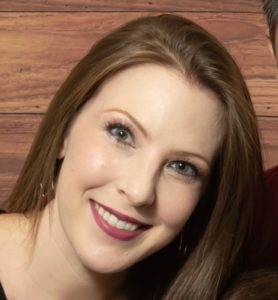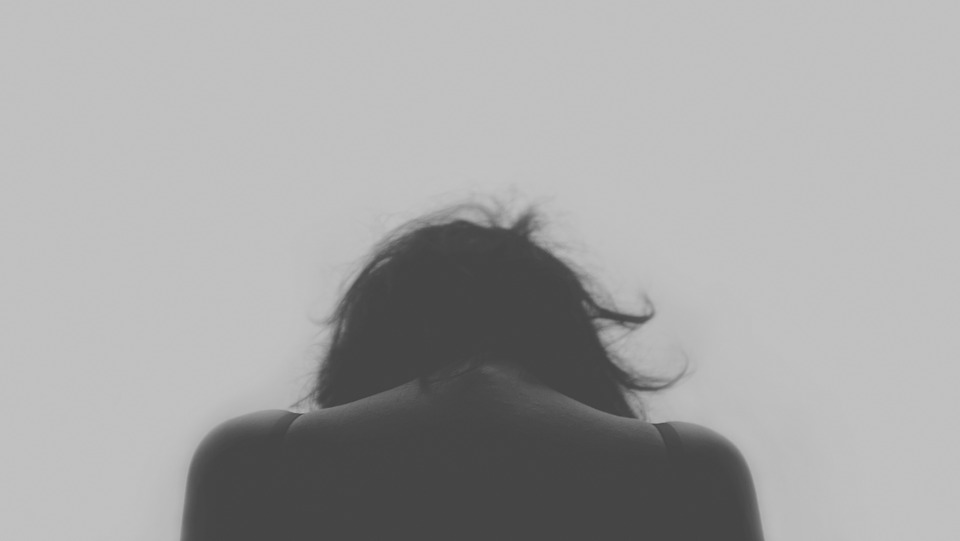We in America live in a culture whose relationship with death is squeamish at best, which seems to be the case in most societies which comprise what is often described as the “Western World.” As a result, we put pressure on both ourselves and others to push down our grief, appear better than we are, and “recover” quickly. I recently read a wonderful blog post about a woman’s experience following two tragic back-to-back deaths in her family- those of her husband and her father. While navigating this unimaginable loss, she feared the question everyone wading through the murky waters of a recent death dreads: “How are you doing?” The conundrum is this: to answer this landmine of an inquiry honestly might pull the asker into a web of despair he or she is not ready to handle, but to give the typical, “I’m fine,” or, “As well as can be expected,” is to deny one’s own pain. However, in our culture, it seems that most people will fall back on the “I’m fine,” mostly out of an obligation not to express their grief too strongly, embarrass the inquirer, or overshare.
Through my own experience of suddenly losing my father almost a decade ago, I realized how uncomfortable people in our culture truly are with death. Although most people ask about you out of genuine good will, very few people actually want the real answer. If you give it, they often want to get out of the awkward conversation as quickly as possible. Others, either with good intentions or to escape the negative and difficult side of grief, shower you with unhelpful platitudes. Still others avoid you completely. I was shocked over and over again by the uneasiness of those who came in contact with my grief. A close friend at the time did not attend the funeral because she said she was, “not comfortable with dead people.” The real shock was that this friend and I were currently earning degrees in Counseling. Even counselors, the ones who should be able to stare into the abyss and not look away, can be too distressed by strong and unpleasant emotions to support a friend at the very outset of shock and grief.


Anecdotes like these are symptoms of the deep discomfort so many of us have with acknowledging or experiencing the strong emotions that accompany death. Although the West has never embraced grief as those in many other cultures do, we were not always quite as repressed as we now seem to be. We used to have some useful methods of signaling to others that something was amiss. The black armbands worn by earlier generations were a simple way of indicating that the wearer was experiencing a great loss. This practice allowed the mourner to quietly acknowledge the death, and it reminded others to honor their grief. Similarly, the tradition of wearing black clothing for a period of time used to be common. While this may seem restrictive, and it could be if coerced, there is something beautiful about the visual reminder which would have been a great relief to me after my father’s passing. When he died, I wore black at the funeral and dark colors for about a week. I distinctly remember wanting to wear the deepest black to reflect the despair I was feeling, but I was afraid I would be viewed as overdramatic. My life felt shattered, but to show that would somehow be in poor taste.

In the aftermath of my loss, I would often hear about or see the customs of other cultures and countries, and I would feel a stab of jealousy for the respect and freedom they seemed to afford to the grieving process. A beautiful custom which I have not personally experienced but which resonates with me is the Jewish concept of “sitting Shiva.” To the best of my understanding, the mourners stay at home for seven days receiving visitors and remembering the loved one. Mirrors are covered so that the bereaved need not worry about how they look. The mourners often sit on low stools to symbolize how they have been brought low by the death. Customs like these afford time for the family to just “be with” their grief, receive comfort, and acknowledge the depth of the loss.

Another culture with a very different view of death is the Mexican culture. I grew up in El Paso, on the border of Mexico, and Dia de los Muertos- Day of the Dead- was a vibrant celebration. Graves were visited, sugar skulls were consumed, and dancing and music were everywhere. While I would not be comfortable setting up an altar for my loved ones, I really do appreciate the sentiment of remembering the dead and their lives on that day. People of all ages- from young children to great grandmothers- participate in the yearly remembrance of all those who have been lost. It is a mix of the somber and the celebratory, with images of skeletons dancing in brightly colored hats. The main thing I took away from this tradition was the reminder that the dead are not forgotten and that we cannot divorce our lives from theirs. We in the West too often attempt to do just that within weeks of the loss. What a wonderful and comforting thing it must be to know that once a year, at least, the dead will be remembered and there will be no fear of talking about them too much or seeming “stuck” in reverie.

When contemplating my culture’s apparent discomfort with death, I often return back to emotion. It seems to me that a great deal of the fear stems from an inability to “let go” or experience strong, uncontrolled, possibly overwhelming emotions. While we in the West tend to shun raw displays of emotion, in some Middle Eastern countries I have heard about funeral processions where mourners will follow behind the body, wailing and screaming. This seems shocking to our Western sensibilities, but there is nothing I wanted to do more at my father’s funeral than wail and scream. Yet, I was silent. I don’t think that I even publicly cried, although I wept in private. After his death, I saw a counselor about my grief, and she suggested that I scream at the top of my lungs in my car to help release the pain audibly. Even that I couldn’t do, although everything in me wanted to do it. Something about expressing the animalistic and raw grief was too much for me, although I felt it so acutely, as is the case with many people in our culture.

An even more extreme and final example of a culture that fully embraces not just the concept of death but the overwhelming emotion that accompanies it is illustrated by the practices of a remote tribe in New Guinea. During my undergraduate work, I took an Anthropology course. In this class we studied the Gebusi Tribe, a native people of the region. I was aghast when I learned that it was part of the mourning process for this group to leave the bodies of the dead in a public area for more than a month. Friends and relatives would come to the body, sit with it, touch it, and even weep while physically laying on top of it. The body would decompose, and still it was visited. Although I would not suggest adopting this practice for a myriad of reasons, most of them hygienic, it is startling to see what a different relationship with death these people have than we do. It is something to be literally embraced rather than talked about in hushed whispers or quickly forgotten. There is no pressure to “move on” or show how well you are doing in the absence of the loved one.
While I love so many things about Western, and particularly American, culture, my long journey through grief has shown me that we are one of the more repressed societies when it comes to expressing our emotions. The most difficult thing of all for us to express may perhaps be pain. We try to push down our own pain and sorrow, both because we are uncomfortable with it ourselves and because we (often correctly) fear that others will be uncomfortable viewing it. We encourage others to “press on,” and we put this same pressure on ourselves. If we could adopt some of the more open practices of other cultures, we might be able to mourn more fully, and I believe it might even have a positive effect on our mental health. Not everyone needs to mourn in an obvious way or prolonged way, but it would be a beautiful thing if we gave ourselves and others the freedom to do so in any way that seemed best to them.
Thanks for reading, and don't forget to Click here to Subscribe!About the Author

|
Jackie Chea is a blogger from San Antonio, Texas who holds a B.A. in Psychology and an M.A. in Community Counseling from the University of Texas at San Antonio. She writes on political and cultural issues from a conservative, religious standpoint. She lives in the Lone Star State with her husband, Nick, and their 7-year-old son, Lincoln. |


Facebook Comments